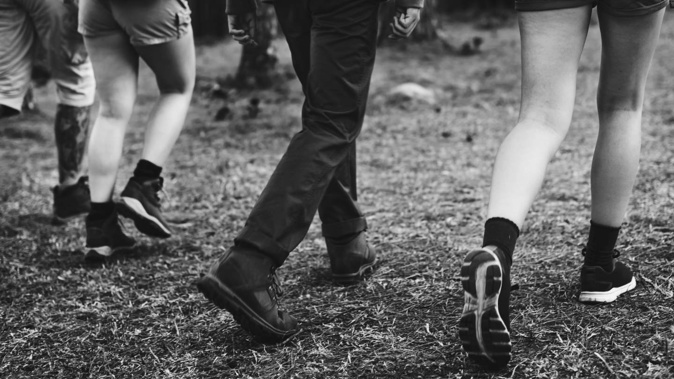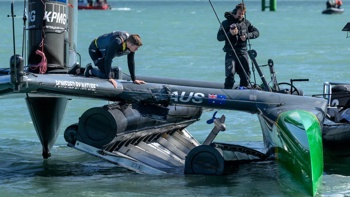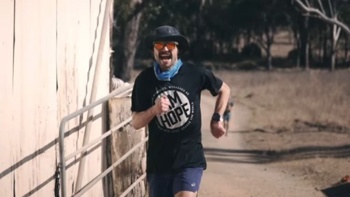
For decades, governments have grappled with how to deal with unruly youth. But, one idea has stood the test of time.
Newstalk ZB’s Chelsea Daniels runs through the history of the political football that is boot camps for young offenders.
The boot camp’s first form in New Zealand began in 1971, but a decade later, “Corrective Training” was born - a three-month sentence for males and females between the ages of 15 and 20.
An early report revealed that 71 per cent of the first year “graduates” committed further offences.
By 1997, the re-conviction rate after five years was 92 per cent, or three times the reoffending rate of the general prison population.
In June that year, National’s then corrections minister Paul East said a review of Corrective Training had confirmed the sentence was doing little to reduce youth re-offending.
East said that on a recent visit to Tongariro Prison he spoke to people involved in managing the sentence.
“It’s clear from what Prison Officers are telling me that we need to provide these young people with programmes which target the reasons for their recidivism,” said East.
Corrective Training was scrapped by the Sentencing Act 2002.
Eight years and a change of Government later, Labour’s then justice minister Phil Goff rubbished calls to reintroduce boot camps for young offenders.
“The boot camp idea is not new. It was tried for 21 years as Corrective Training and failed spectacularly, with a 94.5 per cent re-offending rate. Experience has proven it to be ineffective and a waste of money,” Goff said.
In 2009, National’s then social development and employment minister Paula Bennett snarled at critics - but, still recognised the failure that was Corrective Training.
“Let me make it clear: we are not lurching back to the days of packing all bad kids off to boot camps en masse for ‘corrective training.’ That has been tried and failed, here and elsewhere,” she said.
“The military-style activity camps we plan will be fundamentally different from past models - and they will be just one of many new options available to the courts for dealing with the worst young offenders.”
And with this, the fifth National Government introduced its “Fresh Start” boot camp, re-boot.
It included the introduction of the Military-style Activity Camp (MAC) Programme in 2010, run by the New Zealand Defence Force and designed to provide intensive wraparound support to 40 of the most serious and persistent young male offenders each year.
By July 2011, just two of the 17 youth offenders sent there had not re-offended.
The same year, Prime Minister John Key’s own chief science adviser, Sir Peter Gluckman, said there is no evidence government programmes for problem teenagers such as boot camps, restorative justice and teaching life skills were working.
“The Government needs to admit that it has got it wrong on boot camps,” Labour’s then deputy leader Annette King said.
But, the National Government of the day kept calm, and carried on.
In a speech to an Auckland Youth Justice mini-conference in June 2012, then justice minister Chester Borrows denied the programme be called “boot camps” and looked forward to seeing data from two years of the programme.
“Again, it’s too early to give a formal report on them, but our nose says that they’re doing some great things, yet can still do better.”
But, the data came and the grass was not greener.
A Ministry of Social Development evaluation between February and June 2013 showed of 42 participants who’d graduated MAC - 83 per cent had re-offended.
But, comparing the 12 months after MAC to the 12 months before for these young people, 83 per cent reduced the frequency of their offending, and 76 per cent reduced the seriousness of their offending.
A 2015 report from the Ministry of Social Development found that half of the MAC graduates had re-offended within four months of exiting the residence.
Within 12 months, 86 per cent had re-offended.
That same year saw the MAC programme dwindle, with just nine graduates as at September, and three referrals for the end of year course.
Despite the low turnout, MSD was contractually obliged to pay NZDF whether a programme ran, or even ran at capacity, or not. That meant the Government was paying for 42 places, despite an expected 12 graduates that year.
In June 2016, then minister of social development Anne Tolley, signed off on the proposal to cut back the programmes from four to two in order to remain within budgeted costs for fiscal year 2017.
It was as the New Zealand Defence Force sought to increase costs for the MAC programme.
That leads us into New Zealand’s 39th Prime Minister Sir Bill English heading into the 2017 election - promising their latest boot camp plan wasn’t like other boot camp plans.
He maintained his new approach was unlike anything tried before -- sending 50 14-to-17-year-old criminals off to a military boot camp in Waiouru for a year, costing $30 million over four years.
/cloudfront-ap-southeast-2.images.arcpublishing.com/nzme/Y7S5H7DTFNDVTMC2HFUDF7FJVE.jpg)
The 2023 version is what National's coining 'Young Offender Military Academies' that'd provide discipline, mentoring, and intensive rehabilitation. Photo / 123RF
Fast-forward two Jacinda Ardern-led governments later, and National’s hellbent on bringing back the boot camp.
The 2023 version is what National’s coining “Young Offender Military Academies” that would provide discipline, mentoring, and intensive rehabilitation.
The academy would be a space where offenders aged 15 to 17 would be sent for up to 12 months as a way of rehabilitation.
National has costed the academies at $15 million a year for 60 places.
This time, the camps are based off the Limited Service Volunteer Programme - a six-week motivational training course run by the New Zealand Defence Force.
At the moment, if you’re a young person who’s not studying or working, you can apply for an LSV course. And, as the name suggests, admittance is voluntary.
National’s police spokesman Mark Mitchell says it’s Defence-led, has police mentors and partners with the private sector to run job fairs, MSD - and community and iwi.
“It’ll numeracy and literacy skills, life skills, teamwork, and allowing these young people to have a good fighting chance to come and rejoin society and move into either meaningful employment or training and keep them out of the adult justice system.
“The programme runs on a 70 per cent success rate and you’ve got a bunch of ignorant politicians where it’s easier to bury their heads in the sand and criticise the policy instead of actually taking a look at it.”
But, while National is determined to make the boot camp fit - other parties aren’t as receptive.
Act’s Nicole McKee says military camps can work for some, but not all.
Instead, she wants to introduce charter schools again to educate and discipline kids.
New Zealand First’s Winston Peters seems to be the only one not completely disregarding the idea - saying there’s been enormous success with the LSV programme, particularly in the “Maori world”.
Labour’s Ginny Andersen says boot camps simply don’t work and of the young people who’ve gone through them, 80 per cent re-offend.
And the Greens’ Golriz Ghahraman agrees, saying coming down on young offenders like this means turning a blind eye to the fact the last time we did that, recidivism went up.
Chelsea Daniels is an Auckland-based senior reporter and news director for Newstalk ZB with a focus on crime and justice. She joined the station in 2016 after reporting for CTV in Christchurch.
Take your Radio, Podcasts and Music with you









